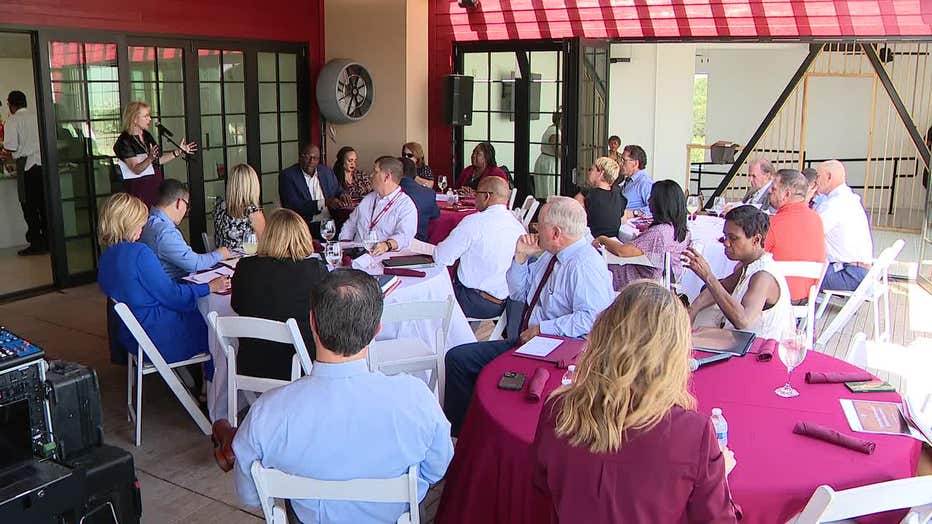Texas A&M leaders meet with area superintendents to discuss plans to recruit minority students

Texas A&M leaders meet with area superintendents
Texas A&M leaders say they want those students in college. But a troubled summer around race in hiring and college admissions is something the A&M system has to reckon with.
DALLAS - Texas A&M is starting an additional recruitment program trying to reach under-represented groups in middle school and planting seeds of going to college.
It was a summer of national attention around a Black professor brought in with fanfare, but it did not stay because of strong pushback by some conservative voices.
Last year, 2,000 African American students who graduated from Texas high schools in the top ten percent of their class did not go to any college or university.
Texas A&M Chancellor John Sharp says we want those students in college. But a troubled summer around race in hiring and college admissions is something the A&M system has to reckon with.
Featured
President of Texas A&M University resigns amid controversy involving hiring of Black professor
Kathy Banks said the negative press following the controversial hiring process for a Black professor became a distraction.
Sharp was in Dallas on Monday meeting with area superintendents about recruiting minority students, particularly African Americans who make up only three percent of the school’s population.
It follows a summer where state lawmakers banned public universities from having offices that promote diversity equity and inclusion, or DEI.
And the U.S. Supreme Court ruled that Declared Affirmative Action in college admissions is unconstitutional.
"The DEI legislation and all those things that happened this summer, that doesn’t have anything to do with recruitment. That doesn’t affect recruitment," Sharp said. "The Supreme Court decision about affirmative action has nothing to do with recruitment."
But what might hurt minority recruitment is what happened with Kathleen McElroy, a former Aggie recruited from UT to revive A&M's journalism school only to leave after a few weeks because of a firestorm around her views on race and diversity. The fallout over her treatment led to a $1 million settlement.
"It wasn't good for Dr. McElroy. It certainly wasn’t good for Texas A&M," said Texas A&M Interim Pres. Mark Welsh. "I think as long as we get back to being what Texas A&M actually is all day every day, which is a great place with great people who respect and value each other and want to make each other great, I think we'll be okay. We just got to keep moving forward at this point."
State Senator Royce West (D-Dallas) brought superintendents and A&M's leadership together. He says he did so because we still have to work to increase diversity.

"We've got to find race-neutral ways in order to get that done, and it’s a two-way street," West said. "It’s not just the universities, but our school districts have to partner with the universities and find race-neutral ways to make certain that our students be able to attend universities in the A&M system and also in the Texas system."


